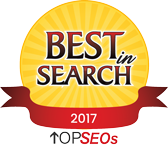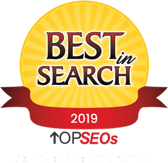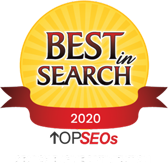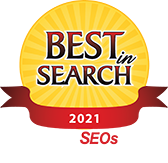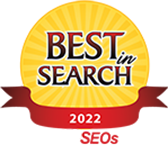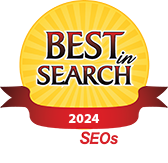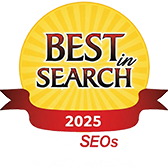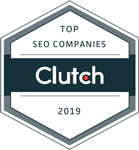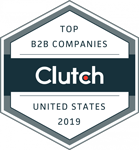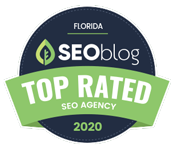
Paid Social Ads vs. Google Ads: Which is better?
Paid Social Ads vs. Google Ads: Which is Better? will teach you the essentials of PPC management for small businesses. Learn tips, examples, strategies, and more to help you achieve better results.
Welcome to our comprehensive guide for PPC management for small businesses. Either if you're into Paid Advertising Strategy or are just entering that universe, this article will demystify what PPC management for small businesses represents, why it is important, and how to wield it effectively.
What is PPC management for small businesses?
Managing small business PPC is a term that usually refers to the organization, optimization, and monitoring of paid advertising campaigns to try and get as much return on investment as possible. Since little ones run tight budgets and thin resources, efficient PPC management is actually changing ad wastage into actual client conversions.
Usually, small companies would go and try their hands on PPC platforms like Google Ads, paid socialistic adsorption aka Meta for Facebook and Instagram, LinkedIn Ads, or TikTok Ads for fast visibility, hits, and conversions. Since all of these platforms bill the advertiser, measuring performance and profitability enters the campaign management discussion. A successful PPC campaign is constructed with period and technique: keyword selection, ad copywriting, targeting, bid adjustments, A/B split tests, competitive research, and conversion tracking. For small businesses, every single click is counted- it should therefore be something that generates value: whether it be a purchase, a lead, or even just brand exposure. When well done, PPC offers the mighty small business opportunity to compete head-on with bigger players, factoring niche audience targeting into the mix. Choosing which ad platform and setting up campaigns run perfectly will make all the difference, steering us directly into our core comparison of Paid Social Ads vs. Google Ads.
Why PPC management for small businesses Matters
for Paid Advertising Strategy
The present digital age has enabled every business to create visibility through paid advertising. However, just by dipping a toe in Google Ads or putting up a boosted post on Facebook, there is no guarantee of any returns. Strategic PPC management for small businesses takes average advertising efforts and helps turn them into measurable and scalable initiatives for growth.
The secret to success remains mostly in the hands of campaign managers when considering other platforms, such as Google Ads and Paid Social Ads. Following are the parameters that need to be seen:
- The intent of the audience at the time of the ad impression
- Targeting ability and accuracy
- Ad creative customization and testing opportunities
- Budget allocation and bidding strategy
- Landing page experience and conversion rate optimization
Without an in-house team of ad specialists and digital marketers, small businesses will burn off chunks of their budget without generating a worthy return. Therefore, PPC management is not just informative—it is a must. Especially in a very competitive month like August 2025, when numerous businesses start to launch their seasonal promotions ahead of Q4, an optimized paid advertising strategy could very well give a local company massive brawn as its strategic advantage.
To explain in further detail, paid social ads versus Google Ads advertising comparison. This is an especially important section if you are a small business with a dilemma on how to best spend advertising dollars.
Paid Social Ads: The Power of Awareness and Engagement
It will allow small businesses to build brand awareness, generate engagement, and retarget potential customers on highly visual platforms such as Facebook, Instagram, TikTok, and LinkedIn. All these platforms provide audience segmentation tools based on demographics, interests and behaviors, job titles, etc.
The use of Paid Social Ads is demand generation engines, social ads are unlike search ads, where users have intent, making them precursor influences on the customer's journey when planting that seed of interest.
For the small boutique fashion house, Instagram Ads become ideal, as they allow products to be displayed in the same environment where prospective customers are consuming visual content. A B2B consulting firm would instead find LinkedIn Ads to be more beneficial so that they get to target decision-makers in a specific industry.
In contrast, with Meta Ads Manager on the social side, there are even more objectives to go beyond clicks: optimize for video views and lead generation, conversions, or direct traffic to an event or promotion, especially for a small business that is trying to start a community or an email list.
Google Ads: For the High-Intent Audience
If Paid Social Ads spark some interest, then Google Ads captures it. With Search Ads, Display Ads, and YouTube Ads under its bed because of Google Ads, a small business can target its audience exactly when they arrive searching for a solution.
For instance, if a plumber in town buys Search Ads, it would put its service ad in front of people searching for "emergency plumber near me" within its area. Because the traffic is high intent, it can bear higher CPC due to the lower conversion ratio.
The targeting of keywords and advanced bidding engines like Maximize Conversions or Target CPA alongside offline conversion tracking makes Google Ads the conversion-growth option to really go for. Small businesses, however, find some trouble setting it up and optimizing it-who is where PPC management becomes very useful.
One of the strongest assets of PPC management for use by small businesses via Google Ads lies in leveraging Google's tools:
- Smart Campaigns and Performance Max
- Local Campaigns to increase foot traffic
- Ad Extensions to improve CTR (click-through rate)
- Negative keyword management to remove wastefulness
So, all these things would allow your advertising dollars to be spent in more important areas.
PPC management downtown can either make or break your pay-per-click advertising income. Walking through the real world examples will give us now.
- PPC management for small firms improves: Pay-per-click campaigns allow small enterprises to compete with large enterprises by targeting certain keywords, demographics, and geographic areas. Visibility on the website can make conversion quicker rather than relying on organic means. An effective PPC program, i.e., through a Google Ads or Bing Ads platform, puts a business in the limelight at the moment of decision for the best people, thereby impacting conversions.
- It supports the ongoing learning of the Paid Advertising Strategy: A majority of senses describe a PPC approach to continuous testing and optimization. In analyzing the effectiveness of keywords, changing bids, and tweaking ad copy, businesses can gradually lower their CPC and increase ROAS. Hence it is a growth mechanism both dependable and scalable for which small businesses could reinvest profits for more advertisement spending.
- Simple Start with the Right Structure: Most advertising platforms will offer easy-to-use interfaces augmented by helpful onboarding tools set up right with the beginner in mind. With proper PPC management tools or outside help, any business can segment the audience, create well-targeted ad groups, and track lead generation plus sales activity. Campaigns can be paused or adjusted according to performance real-time; making them flexible and highly efficient.
PPC management for small businesses vs. Alternatives
|
Criteria |
PPC management for small businesses |
Alternative
|
|
Effectiveness |
High: Immediate visibility and measurable ROI when managed correctly. |
Moderate: Organic SEO and social media often take time to yield results. |
|
Ease of Use |
Simple: User-friendly platforms like Google Ads offer guided setups. |
More Complex: Content creation and SEO require ongoing content and technical expertise. |
|
SEO Impact |
Strong: Promotes top-funnel visibility and complements organic strategies. |
Varies: SEO strategies provide long-term benefits but lack immediate impact. |
Implementing PPC management for small businesses in real scenarios
Small businesses need to institute PPC management for effective cracking of the alignment. For instance, give an elaborate audit of your paid advertisement, if any, and plan accordingly. Look at the relative performance insufficiencies in terms of CTR, conversion rate, and the relative cost associated with them. Find out infrequently used search terms that are yet relevant to your industry via tools like Google Keyword Planner, SEMrush, or Ubersuggest.
Once the opportunity areas have been assigned, creation of the PPC campaign should vary accordingly with intent whence comes the user, being transactional, informational, or navigational, hence being the right potential customer at the buying stage. For instance, a bakery in the town will attract qualified leads only when it targets searches for "custom wedding cakes" and not something broad like "cakes."
This is the essence of advertising: the structuring of your campaigns. It is best to have themed ad groups that target specific products and services so as to improve Quality Score or lower CPC. A proper structure also ensures that your ads are more relevant and have a highest potential to actually convert. With your ad structure in place, begin focusing on ad copies with strong value propositions (for example: "Free Same-Day Delivery") and CTAs so compelling one could not resist clicking: "Shop Now," or "Get a Free Quote."
A/B testing is the other point of considerable focus in ad implementation. Analyzing various versions of your ads, URLs, headlines, and descriptions will lead to an understanding of who best resonates with different messages. Such split testing, with data assisted optimization, is a core element of cost-effective and efficient ad spend. Gaining this kind of insight through weekly campaign reviews that look for trends and act on performance data should become a part of your regular PPC management.
Successful PPC strategies consider budget allocation as well. Put more money into keywords that perform well and less into those that are drawing little attention from your prospects. The more conversions a dental clinic gets through mobile devices, the more mobile-specific campaign budget must be increased to align payback better. With this, boost your lifespan customer value via retargeting.
PPC management working within other areas of your digital marketing strategy improves its performance. Synchronize messaging across your ads and landing pages for increased satisfaction and improved conversion rates. In addition, use Google Analytics to analyze the path taken by users and make alterations to the funnel where they exit. If these changes are continuously monitored, their ad money can very well turn into a profitable marketing machine for small businesses.
Data-driven methods yield real results for some small and medium-sized businesses using PPC advertisement. Consider a plumbing firm that, upon changing its campaign to advertise emergency service only during after-work hours when competition was spared and urgency in queries was high, has witnessed a 25% decrease in cost-per-lead. Proper segmentation and scheduling offer a smaller company opportunities to capitalize where big companies may overlook.
In the final analysis, PPC for small-business management is a powerful lever to provide immediate visibility and qualified traffic and carry scalable growth. When carried out properly, with thought and monitoring, the PPC can really be an essential pillar supporting the entire paid advertising strategy.
Frequently Asked Questions
What does it mean by PPC management for small businesses?
PPC management for small businesses is a set of strategies or a concept used to increase the effectiveness of paid advertising by means of concrete and purposive methods.
How does small business PPC management help?
It fosters improved performance by aligning your content with real-world search behavior and with industry best practices.
Can I apply small business PPC management myself?
Certainly. With the proper tools and framework, even a novice can begin applying these principles effectively.
What tools should I use?
Begin with Google Search Console, SEMrush, and keyword research tools, all of which can offer insight as to how PPC management for small businesses affects performance.
How to Get the Most Value From Your PPC Strategy
Beyond launching some ads, PPC management for small businesses is about understanding how your business can use informed data-based decisions to achieve actual results. Once your ads go live, they must undergo constant tuning in CTR, conversion, and CPA monitoring.
One nice technique to use is to A/B test ad copies. Even small businesses can begin to know what really works best for their target audiences by testing basic changes to headlines, descriptions, or display URLs. Google Ads and Facebook Ads provide built-in testing tools that facilitate finding out what really works best across different devices and demographics.
Retargeting campaigns also come in strongly to really boost ROI. These campaigns allow you to reconnect with users that have interacted with your business at some point in the past but never converted. Retargeting increases brand visibility and higher conversion rates in most cases.
Paid Advertising Comparison: Finding the Right Platform
Picking the right platform is a very critical choice in PPC management in small businesses. Here's a quick paid advertising comparison of the heavyweights:
- Google Ads: Best place for intent-based search visibility and high conversion potential. Good for businesses which want to put ads on thousands of sites across networks for specific keywords.
- Facebook Ads: Targeting by demographics and interests. Good for brand building and retargeting.
- Microsoft Ads: Usually cheaper than Google, has mature and above-average income users.
- LinkedIn Ads: Work best when the B2B campaigns demand targeting of professionals based on job titles, company size, or industry.
Paid advertising platform comparisons allow you to ensure you are properly investing your money according to your goals. Usually, the best strategy includes generating PPC campaigns on more than a single platform and considering the results to determine the most cost-efficient routes.
Choosing the Right PPC Agency
Though a little do-it-yourself approach to managing PPC for small businesses can work in the beginning, many small businesses eventually require expert agency help to scale their operations. Seek digital marketing partners who conduct full PPC audits; craft campaign strategies tailored to your specific needs; set up conversion tracking; and do all the necessary optimizations themselves.
They should genuinely understand your industry, business goals, and competition and be very transparent in their reporting to you. Bonus points for agencies that synergize with you beyond PPC by providing SEO, web design, and social media services to create a unified digital presence.
Next Steps
Armed with relevant knowledge about PPC management for small business, it is time the next step was taken for a transformation in your digital marketing strategy. Never leave your advertising budget to wonder, and to ensure that you do, let a team of PPC experts lead you and keep you ahead of competition.
Request Your Free Digital Marketing Consultation Today!
Take Action Now
Ready to grow your small business through high-performing PPC campaigns? Get expert guidance and proven strategies from a trusted local agency.




